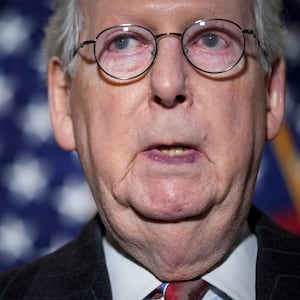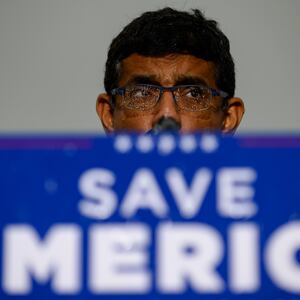Yesterday, the United States Department of Justice obtained a superseding indictment charging five members of the Proud Boys—a far-right group—with “seditious conspiracy” for their roles in the assault on Congress on Jan. 6, in an attempt to prevent the Electoral College from declaring Joe Biden as the winner of the 2020 presidential election.
Each defendant is also charged with at least eight additional federal offenses, in a ten-count indictment.
Although other defendants have pled guilty to seditious conspiracy for their roles in the Jan. 6 assault, this indictment is the first time it appears likely that federal prosecutors will actually go to trial on this most serious charge.
The odds for conviction seem solidly in favor of the federal prosecutors. In general, the DOJ wins approximately 85 to 90 percent of criminal cases that go to trial. In specific, the indictment here lays out the tremendous investigative resources that have been devoted to preparing this case.
What is Seditious Conspiracy?
It’s a conspiracy to “oppose by force the authority of the Government of the United States and by force to prevent, hinder, and delay the execution of any law of the United States,” in violation of 18 USC Section 2384.
In this case, the indictment alleges that the five defendants conspired to “oppose the lawful transfer of presidential power by force.”
To obtain convictions, federal prosecutors will have to prove beyond a reasonable doubt that two or more people in the U.S., (1) conspired, (2) to prevent, hinder or delay the execution of the laws governing the transfer of power, (3) by force, and (4) each defendant knowingly joined that conspiracy. If a defendant knowingly joined the conspiracy, it does not matter whether that individual himself used force to prevent the peaceful transfer of power, so long as at least one other person did.
Since the start of the investigation in January 2021, federal prosecutors have stated that seditious conspiracy was the most serious charge they were pursuing. “You’re talking 20-year felonies…Yes, we are working on those cases, and I think the results will bear fruit very soon,” said Mike Sherwin, then the acting United States Attorney for the District of Columbia.
Who are the defendants?
The five alleged members of the Proud Boys under indictment are Ethan Nordean, Joseph Biggs, Zachary Rehl, Enrique Tarrio, and Dominic Pezzola. Tarrio was allegedly the national chairman of the Proud Boys, while Rehl and Nordean are allegedly presidents of local chapters of the Proud Boys.
Tarrio was the lone defendant who is not alleged to have entered the Congress on Jan. 6, because he was subject to a court order not to enter Washington, D.C. for burning a Black Lives Matter flag stolen from a Black church in December 2020 (Tarrio accepted a plea deal on two misdemeanor charges in July 2021). Tarrio allegedly masterminded and coordinated the Proud Boys’ actions on Jan. 6 via encrypted communications.
From the start of the investigation, the Justice Department has stated that it was investigating the role of the Proud Boys in organizing the Jan. 6 assault on Congress.
What is the evidence against the defendants?
The superseding indictment is a so-called “speaking indictment,” which sets forth detailed facts that the government contends prove that each of the defendants is guilty of each of the charges. The indictment includes 80 paragraphs of “acts in furtherance of the conspiracy” alleging that that the defendants (1) engaged in substantial planning to invade the Congress in advance of Jan. 6, (2) destroyed encrypted messages in advance of Jan. 6, to get rid of evidence of their conspiracy, (3) led the charge through police barricades, (4) broke the window next to the door to the Senate to allow access into the Capitol, and (5) engaged in violence and destruction.
What are the likely defenses?
The Proud Boys defendants, as a group, likely will argue that they did not engage in any illegal activity in advance of Jan. 6, but rather constitutionally-protected free speech and assembly. This defense proved successful in the recent trial of four members of the Michigan Militia for allegedly plotting to kidnap Michigan Gov. Gretchen Whitmer, with two defendants acquitted and a mistrial for a hung jury on the other two defendants. An obvious difference from the Michigan case, however, is that the plot to kidnap Gov. Whitmer was never put into action, while the Proud Boys actually participated in the invasion of Congress on Jan. 6.
One defendant, Zachary Rehl, immediately filed a motion in response to yesterday’s indictment, contending that the charges against him were without basis, because he (1) was not alleged to have used force at any time, (2) did not enter the Capitol until after Vice President Mike Pence had left the Capitol, (3) entered through an open door, (4) did not fight with police, loot or take any property, and (5) did not direct or help anyone to do any of those things. Even if every one of Rehl’s contentions is true, however, under federal conspiracy law, he could still be convicted for knowingly entering into a conspiracy with people who actually committed one or more of those acts.
If convicted, how much prison time do the defendants face?
A conviction for seditious conspiracy carries a prison sentence of up to 20 years. Each of the other crimes for which the Proud Boys are indicted carry sentences with maximum prison sentences of either five or 20 years—meaning that the highest theoretical sentence could be well over 70 years.
A more realistic view of the potential sentence is provided by analysis of the U.S. Sentencing Guidelines, which must be consulted in each case, and usually leads to a recommended sentence far below the theoretical maximum sentence generated by simply adding the maximum prison term for each individual crime.
The applicable guideline provides a total offense level of up to 38, because the offense involved (a) substantial interference with government function, (b) “extensive scope,” (c) obstruction of justice through destruction of evidence, (d) an aggravating role for the leader of five or more members of the conspiracy, and (e) the use of body armor.
Depending on the criminal history of each defendant, at Offense Level 38, the recommended sentencing range could be as low as 235 months (just shy of 20 years) and as high as 360 months (30 years) to life.
Will the government win this case?
Almost 98 percent of indicted cases are resolved by guilty plea, so it would not be unusual for one or more of the five indicted Proud Boys to plead guilty before trial (which would likely reduce their sentencing exposure significantly, even if they do not cooperate against other defendants).
If this case goes to trial against one or more defendants, it will likely be a very difficult case for the defense, given the fact that the entire weight of the Department of Justice has been placed behind this investigation.







